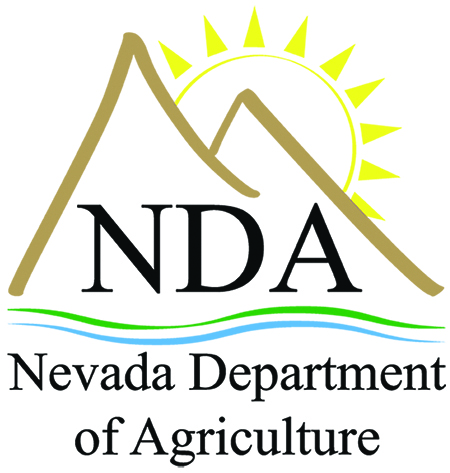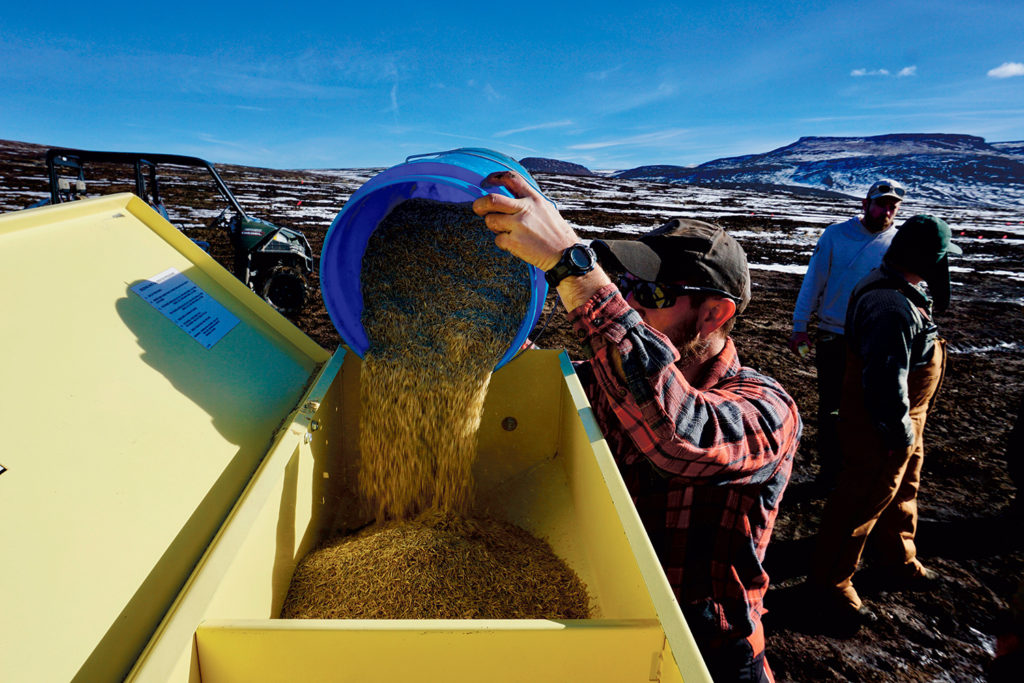 In Nevada, invasive annual grasses increase wildfire frequency and intensity. Grass-fueled fires threaten human safety, destroy infrastructure, decrease economic productivity, degrade wildlife habitat and reduce recreational opportunities. Best management practices suggest that restoring previously disturbed sites is the best way to combat this oppressive fire cycle, but restoration in the sagebrush ecosystem is challenging, especially when trying to restore native plant species that provide the highest habitat value. Millions of pounds of seed are used every year to restore ecosystems on burned or disturbed lands. However, the majority of seed used in Nevada originates and is genetically adapted to cooler, wetter growing conditions, rather than the drier climates and areas in which they are used. With Nevada’s distinction as the driest state in the country, seed developed in other environments have little hope of returning the landscape to its pre-disturbance conditions. As a result, the vicious cycle of burning and re-seeding is rapidly eliminating biodiversity from Nevada’s ecosystems. While climate factors will always have a strong influence on restoration outcomes, efforts could improve if seed was genetically appropriate for the areas in which it was planted.
In Nevada, invasive annual grasses increase wildfire frequency and intensity. Grass-fueled fires threaten human safety, destroy infrastructure, decrease economic productivity, degrade wildlife habitat and reduce recreational opportunities. Best management practices suggest that restoring previously disturbed sites is the best way to combat this oppressive fire cycle, but restoration in the sagebrush ecosystem is challenging, especially when trying to restore native plant species that provide the highest habitat value. Millions of pounds of seed are used every year to restore ecosystems on burned or disturbed lands. However, the majority of seed used in Nevada originates and is genetically adapted to cooler, wetter growing conditions, rather than the drier climates and areas in which they are used. With Nevada’s distinction as the driest state in the country, seed developed in other environments have little hope of returning the landscape to its pre-disturbance conditions. As a result, the vicious cycle of burning and re-seeding is rapidly eliminating biodiversity from Nevada’s ecosystems. While climate factors will always have a strong influence on restoration outcomes, efforts could improve if seed was genetically appropriate for the areas in which it was planted.
Currently, there are no large commercial native seed producers in Nevada. Through outreach efforts, the Nevada Department of Agriculture (NDA) has received interest from producers throughout the state looking to diversify their traditional crops and incorporate native seed production in their operations. However, most prospective producers are not familiar with cultivation, cleaning or sale of native seed. The availability for native seed for production including wildland collected seed is difficult to access.
To combat the lack of locally adapted native seed, the NDA has introduced the Foundation Seed Program. Producers are encouraged to apply for an award of native seed stock to be cultivated in Nevada. All applications will be reviewed by a committee and chosen participants will receive seed of the species of their choosing at no cost. Producers will then be responsible for cultivation, seed production, harvest and crop cleaning, with a portion of the seed yield to be returned to the Foundation Seed Program to establish a sustainable seed stock. The amount of seed returned to the program will be determined at the time of award on a case-by-case basis. The applicant is then free to use the remaining seed in continued or expanded production on their farm, or to sell the remainder of their yield in the native seed market to be used in restoration and rehabilitation efforts.
This program supports growers new to cultivating native seed and those with experience. Resources are available through the NDA and partners to give producers the best chance at success in producing native seed, whether or not they are participating in the Foundation Seed Program. With access to technical guides and expert advice, the NDA can help producers begin their venture into the native seed market.
To learn more about the Foundation Seed Program and apply for native seeds, visit agri.nv.gov/seed or contact the NDA at seed@agri.nv.gov or (775) 399-0284.

